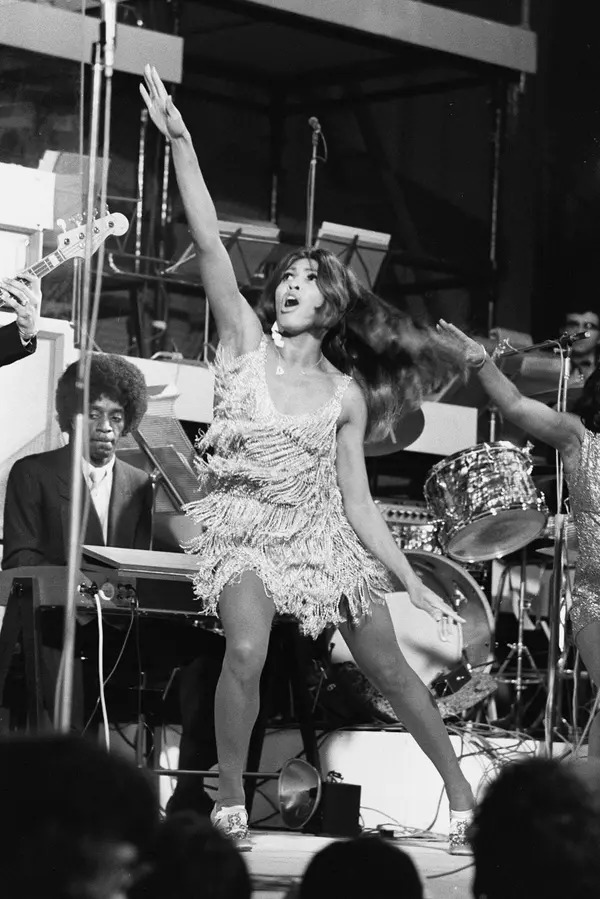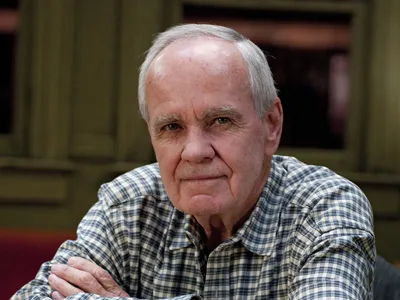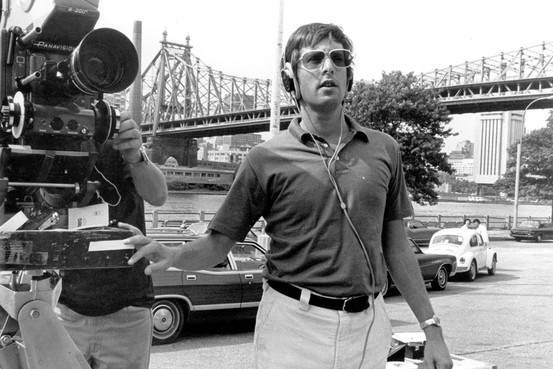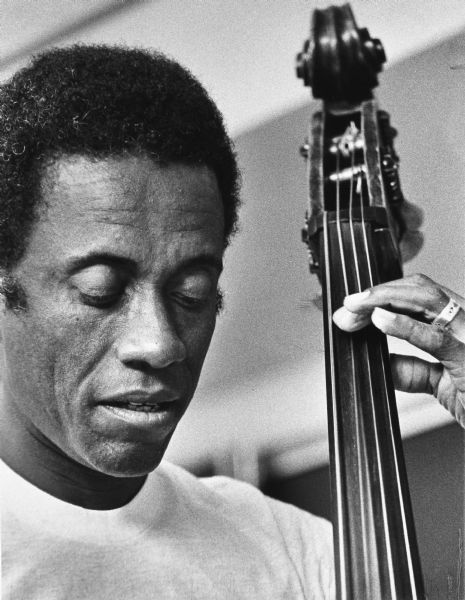Wow, it’s sad to look back and see the sheer number of all-times greats we watched depart our planet this year. Of course, these losses are invariably mitigated by the fact that we were fortunate to have them amongst us in the first place.
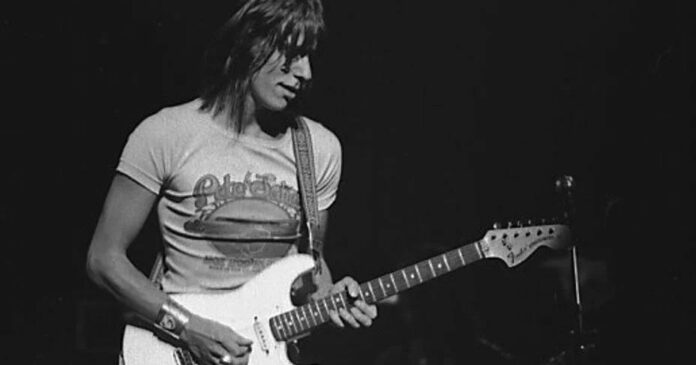
2023 kicked off with a most unwelcome bang when word broke that we’d lost the Guitar Grandmaster, Jeff Beck. From my extended tribute:
If you’re not a fan or are unfamiliar, pay attention to what your favorite guitar players are saying right now. We live in a world where being disagreeable is the default setting, and seemingly no one can agree with anyone else about anything. But you’re not going to see any forced sentiment or dissension: Jeff Beck was a god amongst mere guitarists, and a model for any musician, full stop. No one ever possessed such sustained and heightened mastery of feel, technique, and tone. If it’s ridiculous to assert (or care whether or not) Jeff Beck is the best guitar player ever, it’s also absurd to not include him on the shortest of lists.
We have guitar players, guitar heroes, guitar gods, and those who can only be described as other. Jeff Beck is difficult to pin down not only because he never claimed (or, by all accounts, courted) global fanfare, but because unlike so many of his contemporaries, he didn’t have a style; he had styles, he contained multitudes. Sure, he could shift seemingly without effort between rock, blues, jazz, and (here the cliché is not only warranted but obligatory) possessed an encyclopedic repertoire, and the facility to go from dark to bright, loud to subtle, fast to languid, covering centuries in mere seconds. For the uninitiated, head to YouTube and pull up virtually any video of Beck performing live: it’s all there on display.
I single out his cover of the uncoverable Charles Mingus’s “Goodbye Pork Pie Hat” as his shining moment from the ‘70s (and possibly the single best showcase of his skills). As he’d proven, he could shred and innovate like nobody’s business, but he also did slow and soulful perhaps better than anyone else who has ever strapped on a guitar.
Also in January, we bade a fond adieu to David Crosby.
Not sure if anyone was dedicated to being that guy as long or at the same level as David Crosby: decades being that guy: band killer, friendship ender, high-end harmonizer, the squeaky wheel that helped get to the finish line, uniter, divider, unbearable know-it-all, dude with a big heart and bigger ego, man absolutely committed to rocking the same ‘stache for decades (years upon years where trends began and ended, seasons turned turned turned, hippies became yuppies, pot got legalized, Neil Young put out 97 solo albums, Graham Nash remained an asshole, Stephen Stills did whatever Stephen Stills does, brown hairs turned white and Croz rocked that goddamned mustache), and for being part of more than a handful of songs that ranged from stunning to sublime, iconic to eternal, and for all the bridges burned and opportunities wasted and the blessing of more lives than a cat, he was THAT GUY.
As it happens, I just watched the documentary Remember My Name the other night (!), and recommend it: lots of amazing stories, confirmation that Dennis Hopper modeled his “look” in Easy Rider after Croz and, proving he was both a good actor and a natural, managed to be even more insufferable than Crosby. By the end, Nash, Stills, and especially Young would have nothing to do with him, and he apologized, publicly, many times, and practically begged for reconciliation. He looked back at the wreckage of his relationships, admitted fault, took blame for all of it, and answered the key question without hesitation: if you could do it all over again and have lasting friendships and harmony but no music, would you? He looks at the camera, repeats the question: “No Music? No way.”
He was that guy. He knew who he was. And he left a legacy that is part of our culture. Hard to do anything but tip the hat in appreciation and with respect. Rest easy, Croz, you earned it.
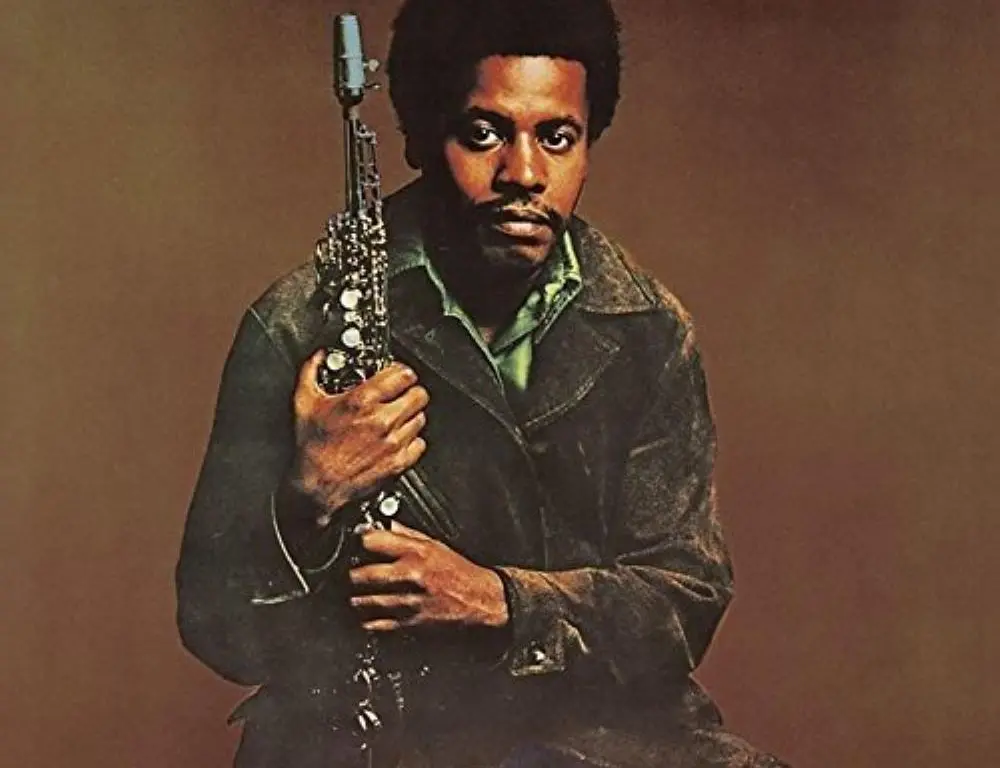
Wayne Shorter is, for my money, possibly the most underrated genius in any genre of music. To be sure, he certainly received plenty of props within jazz circles and the people who know really know. In his wise, humble way, he always seemed cool with that. He was, from start to finish, one of the coolest customers, which made him that much more precious in a world filled with hucksters sucking on trends and posers faking it ‘til they make it. (You could design a life course just based on his and his partner in crime Herbie Hancock’s personal and professional trajectories, and before even getting to the music, consider their Open Letter to the Next Generation of Artists.)
Not as instantly accessible as his closest compatriots in the all-time canon, John Coltrane and Sonny Rollins(both of whom could, if one cared about such things, be crowned best ever at what they did), Shorter obliges the listener to accept and then embrace him on his terms. For the unfamiliar, much of Wayne’s work is like, say, imported dark chocolate. Or fresh Kona coffee beans. Or a 2014 Brunello di Montalcino (or a 1964 Brunello di Montalcino for that matter). Or whatever type of car people who appreciate cars get excited about. You get the picture. Wayne Shorter is, in other words, the authentic item that aficionados savor, but whom virtually anyone with unpolluted ears can immediately appreciate.
Clichés be damned: Shorter was on a quest and his music was a spiritual as anyone’s—including Coltrane, Albert Ayler, and Pharoah Sanders; and yes, including Bach, Mozart, and Beethoven—alongside these artistic icons, he took everything that had been done before and perfected it, and then continued pushing the boundaries. Monastic and always willfully eccentric about his craft, there’s no doubt his highest goal was using his talent in service of the extraordinary: I’m not certain any musician has captured ecstasy in sound with the purity and consistency of Shorter, his solos so assured and ebullient they brim with everything positive about existence, becoming heroic in their way. (See Addendum #2 for some examples of the indescribable perfection of Shorter’s playing.)
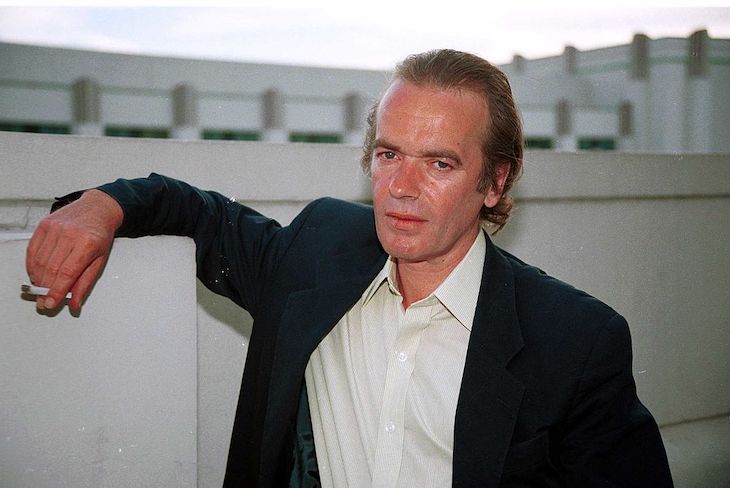
In May, I braced myself to deal with the loss of a personal hero, and an artist whose talent and style I’ve envied and emulated for decades, Martin Amis.
Here’s the thing: there really is no one else like Martin Amis. With the exception of Money, there’s no novel of his I enjoy without reservation; some are too long, some too one-note, others too many (unconvincing) notes, yet one cannot help but enjoy the words. On a line-by-line level, it’s always pure pleasure; there’s always the intelligence, the sensitivity, the style. Amis was simply too talented to bother with consistency or petty issues like plot or connecting the narrative dots. Money succeeds as a novel entirely driven by voice and that style, the first hundred or so hilarious pages comprising a near overdose of sensory delight: all the images, scenes, and sentence-after-sentence a literary kitchen where everything on offer is first-rate and free of charge. It’s (pick your comparison) like watching Jordan in the mid-90s, or Pacino in the mid-70s, or The Stones in the late-60s: a rarified air of mastery, unspooling in real time, absolutely beyond belief but somehow, miraculously, right there in front of you. And better still, like the best art it can be returned to—savored and studied.
As an essayist and critic, Amis easily ranks amongst our most proficient, seemingly without peer in terms of his range and scope. Once Amis offers judgment—on a book, an occasion, a politician, whatever—it stays judged, definitive upon arrival. The War Against Cliché was his aesthetic mission statement: he wrote about the same things (in his novels and his essays) everyone else does, but his take on any topic is not only distinctive, but unfettered, and permanent. Who knows or cares if this is the pressure he put on himself to make every effort a tour de force, or if he was truly as disproportionately talented as he seemed.
Reading his non-fiction is like riding in a plane. As you cruise over miniaturized skyscrapers, crop circles, mountains, even oceans, you recognize—and remember—how tiny and insignificant your own piece of turf (wherever you came from; wherever you’re going) actually is. Amis’s works seems all-encompassing, and it’s enough, at times, to fill one with diffidence and awe. But mostly delight.
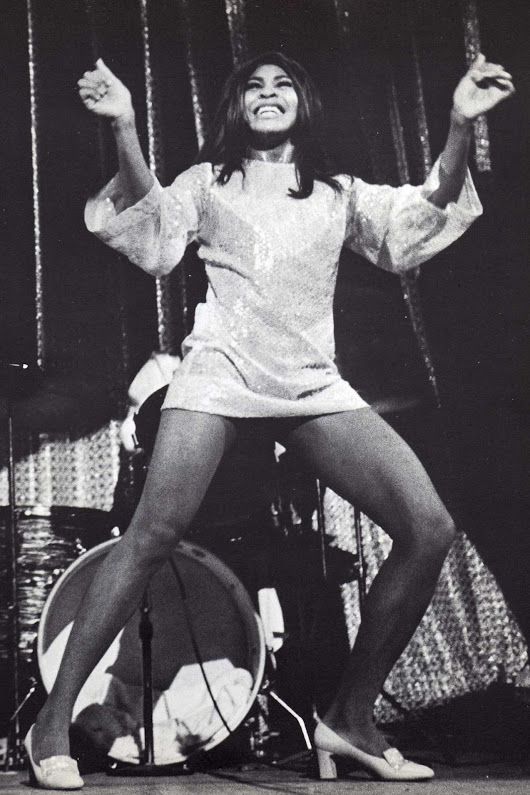
This one hurt everyone, particularly those of us lucky enough to enjoy her prime years in real time.
Tina Turner: what a goddess, an inspiration, a river deep & mountain high human being and a truly beautiful woman in every conceivable sense of the word. Lots more to say, and I’ve already said some things (see below for my poetic tribute that tried to do her justice, and also supplied the title of my first collection — offered up then and now with maximum love, humility, and the whitest possible self-deprecation.)
Tina Turner’s Legs
Those thighs could crack your back
like a peanut beneath a pair of pumps.
Or slice your head off like freshly-shaved
scissors, and you’d lick them like lollipops,
in awe and almost insane, a dream cum true.
No, video is good as it’ll ever get—and
that’s good enough: you wouldn’t even
begin to know how to handle those miles
of succulent straight lines, lost in darkness,
delirious; look but don’t touch or better
yet, just listen. There’s a lot you could learn:
the thigh bone’s connected to the hip bone,
the hip bone’s connected to the back bone…
Look at them. Walk a mile in those heels:
Muscle and rhythm and the brutal love
of harmony. You have to be strong to bear
that body of work. You carry that weight
long enough and the burden becomes a kind
of blessing, at least in the eye (and especially
the shy, shaking hands) of the beholder.
Take a deep dive into this river and come
out on the other side of the mountain, high.
We always try to kill what we can’t control;
that’s a whole history of colored commentary.
Black and blue, the blackened blues of beautiful blackness.
Listening and looking, thirsty like a lush
in a liquor store, but this kind of sweetness
could kill you—and you’ll die tasting brown
sugar on your tongue, panting like Pavlov’s
bitch, kissing those boots, holding out hope
that one day soon they’ll walk all over you.
Cormac McCarthy was, like another uber-masculine (albeit polar opposite, aesthetically) writer of the old school, Philip Roth (more on him, here), an artist who did the work. Shunning the spotlight, apparently willing to live a scrappy sort of existence where seemingly everything but the work was a distraction, he epitomized the rarest of sensibilities where any kind of pleasure that encroached on the work was a luxury, something to be avoided. If the books were mediocre his example would still serve as an antidote to our social media moment, where so many writers worry first about brand before they figure out how to compose interesting sentences, he is at once throwback and hero for those in need of anti-heroes. But the books were anything but mediocre, and while more than a handful of his efforts have been (correctly) hailed as masterworks, posterity is going to be exceedingly kind to his legacy; there will be few if any who live and write anything like he did. (You read a book like Blood Meridian and, while comparisons to Faulker, Melville, Shakespeare, and the Bible are inevitable, you mostly have no frame of reference because not only did no one else write like this, it causes you to wonder who else, aside from this author, even thought like this.)
It would be too easy by half to claim No Country for Old Men is unfilmable because it practically reads as script, and the Coen Brothers were wise enough to use the text as much as possible, including this perfect ending of a perfect film, word for word from the last page of the perfect novel. It’s writing like this that makes even the best efforts by so many talented contemporary writers seem bereft of experience and soul, like a paint-by-numbers of life learned from media as opposed to dearly earned through the pain and profundity of reality. There’s an acknowledgment of loss, impermanence, and the salvation of memories and deeds to make the suffering bearable, something worth preserving, and celebrating.
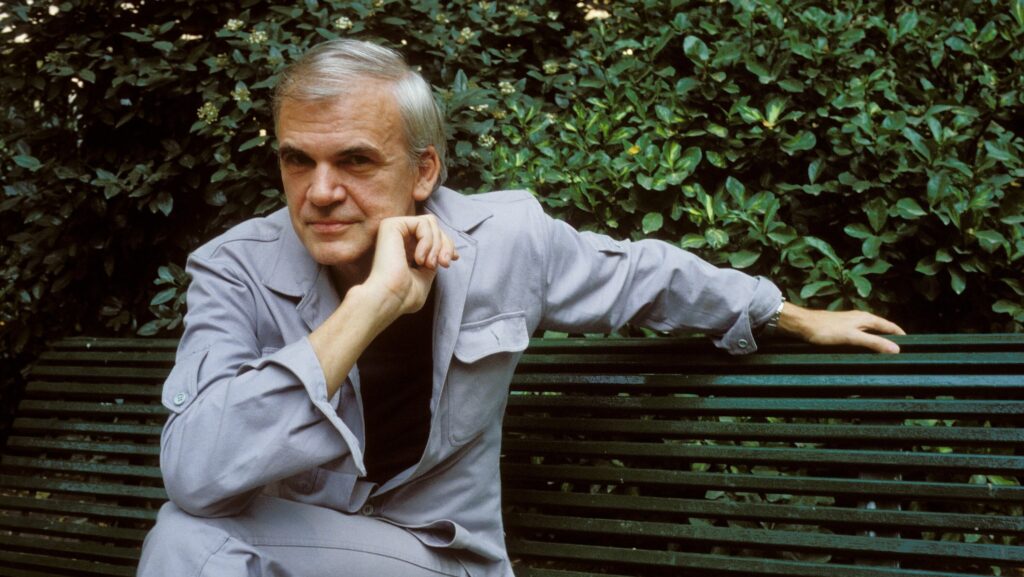
In hindsight, it made an odd sort of sense to lose two twin towers of world letters, Martin Amis and Milan Kundera, in the same year. Absolute titans who have been and surely will be oft-imitated and never remotely approximated.
Kundera almost killed me, still in my creative cradle, a writer needing nourishment.
He arrived in my life too early. As a reader, it wasn’t soon enough, as what relatively inexperienced but enthusiastic amateur—fresh from the front lines of grad school and adjusting to a world without texts to deconstruct—won’t benefit from that kind of sophisticated guidance, at any age? Still, as an aspiring writer, Kundera’s work had the odd effect of inspiring me, only too much. You read accumulated wisdom of this caliber and feel desperate, like a creature trudging through the heat in search of an oasis. Finally, you happen across a patch of water, lapping up every drop, half insane with relief and oblivious to the crocodiles lurking hungrily in the shallows.
Reading Kundera at any age, particularly as an aspiring writer with a future filed under “TBD,” you don’t just want to write like him, you want to be him. On some level you understand: in order to write like that you have to have lived like that. Eventually—and the sooner the better—you recognize it’s an impossibility and, choices narrowed to one, you lick your wounds and get on with the unbearable lightness of being yourself.
I read Kundera in a pre-Internet world, and I wonder how disconsonant to our 21st Century insanity his work will be, going forward. Kundera, a man out of time is, in some ways, more easily connected—spiritually, aesthetically—to his heroes from centuries past than any of his peers, artistic or otherwise, today. He was an old soul, certainly, but a creative one; he undoubtedly ruffled the feathers of ancient gods, watching him with envy and pity as he encroached on the sublime, aloof from the mere mortals he walked amongst, no safe home here or in heaven.
A great deal more on this master, here.

Aw man, it certainly sucked to accept that our world no longer has Alan Arkin to enjoy, though of course we’ll do so through his robust and wonderful body of work.
Before he became the always-lovable cantankerous old guy, he was (like so many, but not all, of us) young once, the main attraction as opposed to supporting actor (he’s remarkable in The Heart is a Lonely Hunter from ’68, and later, indelible in smaller doses in everything from Glengarry Glenn Ross to Grosse Pointe Blank to the under-appreciated Sunshine Cleaning, and obviously there’s the well-deserved Oscar for Little Miss Sunshine). But for me, the role that bookmarks his entire career, before and after 1970, is the once-in-a-lifetime tour de force of an ostensibly unfilmable book, Yossarian in Catch-22.
Being one of my (and, obviously, many, many others’) favorite books, I should have positively loathed this movie on pretty much any level. How could they pull it off? How dare they try? Somehow, it works, and while the awesome screenplay (h/t to the oft-uncelebrated Buck Henry) and stellar casting (Charles Grodin, Martin Sheen, Bob Newhart, Anthony Perkins, Bob Balaban, Jon Voigt, Norman Fell (!), Orson Welles, Art Garfunkel for God’s sake — and proving the universe always has a plan: if “Tom” isn’t cast in this film, this song never gets written and music history and the history of our time on this planet is the lesser for it) –and close-to-perfect direction from Mike Nichols all help, the whole thing would implode on sight without the perfect (only?) person who could strap on the leather flight jacket and convey the hilarious and bitter multitudes that WWII bombardier John Yossarian contains: Alan MF Arkin. It’s unlikely any other actor (and this was a time when giants strode the earth) could have more aptly combined the anger (Arkin yelling was itself an art form), wounded sensitivity, bone-deep anxiety, self-effacing humor and, yes, charm, that the role requires.
More on him, and Catch-22, here.
And then, during the hottest days of summer, came the unwelcome news of William Friedkin’s passing. From my extremely lengthy appreciation of his career and iconoclasm:
Let’s begin with the obvious: he directed The French Connection and The Exorcist. These belong on any short list of all-time great movies and signify possibly the best one-two punch in cinema. All his best films can be broken down not just scene by scene, but second by second, savored and studied, and fully enjoyed—which was his primary purpose, of course, as any of the wonderfully entertaining and refreshing interviews he did make abundantly clear. He was an authentic badass, and one of the singular cultural icons America has produced.
He didn’t just accept challenges, he created problems only he could solve, and was preoccupied with overcoming obstacles—artistic and otherwise—that he put in his own path. This was not necessarily self-destructive or egotistical; Friedkin simply refused to acknowledge he could not bend reality to his indefatigable will, and if he abandoned some friends, colleagues, and spouses on the side of the road, he also left most of his competition there as well.
Perhaps the lasting import of William Friedkin, a kind of eternal mic drop to accompany his work, is the way not only his career, but his entire sensibility annihilates the romanticized notion (held and perpetuated mostly by non-artists) that great creative works are inevitable; that certain writers or musicians or directors are guided by some unseen force that more or less wills these treasures into existence; that the hurdles (placed by the environment or the industry or whatever) helped rather than hindered their visions. It’s worth noting, for struggling creatives especially, that The French Connection was rejected by every studio except one. The fact Friedkin allegedly bribed a city official to film its now immortal chase scene proves the real magic happens when we’re willing to pay whatever cost is required to bully an idea onto the page or screen. His epitaph could be simply that to survive the occasional hurricane you need to become an occasional hurricane.
Richard Davis, God-Level on so many occasions, IMO arguably never more so than on this track from an album that continues to defy, astonish, amaze, heal, inspire. We’ve lost a great one, but he left us with The Gifts.
(An excerpt from a poem, about this song, from the forthcoming collection — Spring 24):
It sounds like an alien
transmission, today.
God only knows what
this sounded like
to inexperienced ears—
even in an era
when the world was
being reimagined
seemingly each second.
Ecstatic and uncanny,
audacious and strange,
this is music
as mission statement:
We are here to do work
and it’s as serious as life.
It seemed appropriate that I was on campus, en route to teach undergraduates, when I first learned Louise Glück had departed, prematurely. I first fell under her spell on an autumn day, inside a classroom, several decades ago:
1991: I had already encountered all the usual suspects (Poe in middle school, perhaps some Whitman or Dylan Thomas and possibly a Shakespeare sonnet or two in high school, then had my mind blown by A.E. Housman the way only an eighteen-year-old freshman can, then Dickinson and the Romantics (and what can approximate certain types of susceptible souls reading Keats and Shelley for the first time?), then, slowly growing older and easing into the 20th Century with a touch of T.S. Eliot and a dash of Wallace Stevens. A lot of anthologized poems, many of them rhymed, and most of them having the aesthetic of black and white footage: not quite clear or possibly too stark by half, more than a little antiquated, wisdom dispensed like a Sunday sermon: good for the soul, something for the mind to file away like a fat squirrel storing nuts for colder days in the future; all more or less understandable—this is how one becomes cultured, or at least used to be.
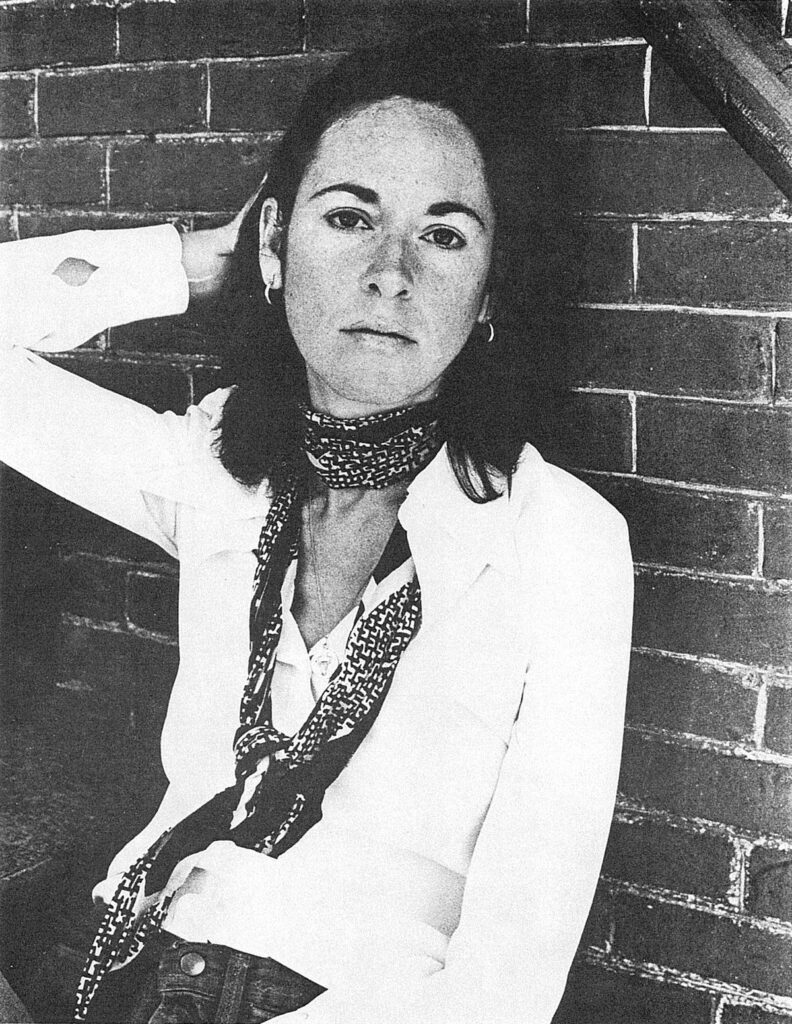
It wasn’t until my senior year poetry writing workshop that we caught up to current events and the ways they inspire poetry written by people who still walked amongst us, actual flesh and blood beings who happened to be geniuses. Of the many poems that invited me out onto the ledge to show me how vast, deep, and dark the world all around me actually was, the one I’ll always remember and acknowledge is “Mock Orange” by Louise Glück. This is the type of poem that serves last call for the ambivalent, a reminder that if you weren’t able to commit, it was best for everyone if you jumped off the train immediately, because it was only going to get scarier (i.e., better) from here.
I can’t say I understood it; I’m not even sure I enjoyed it. But it grabbed me by the collar the way certain works do (not coincidentally, this is the same semester I was beginning to grapple with jazz music, and to recall Ornette Coleman’s “Focus on Sanity” rattling around my dome as I read and re-read Glück’s poem is a reminder how fortunate I was, and that I may have still been in need of a translator, but I recognized an invitation when I received one).
Check it out:
“It is not the moon, I tell you.
It is these flowers
lighting the yard.
I hate them.
I hate them as I hate sex”
Wait a minute: she hates flowers? And she hates sex? I thought poems were all about flowers and sex, and how beautiful both were? Well, only to a young reader who hasn’t read nearly enough poems or had nearly enough sex. This, then, is like finding a second bible and discovering how of course all this eternity babble is so much bullshit, and not only is there no afterlife, you’d better get busy figuring this one out, because it’ll all be over entirely too soon.
Or maybe that’s me, trying to remember what it felt like, barely of legal drinking age, yet old enough to enlist (or be drafted) if such things were either desirable or non-negotiable. But it was fall semester 1991, a fin de siècle time in America, and I was fortunate enough to concern myself with figuring out how words could mean exactly what they said, but somehow not mean anything that felt comfortable or familiar. And this is how a student learns how to read as a student, or even begins to read as a writer, as someone who will one day write things that might make sense in ways that only a select, extremely sensitive type of person will fathom.
“How can I be content
when there is still
that odor in the world?”
All I knew, as I toted my anthology of Modern American Poetry around campus, beginning to realize I had indeed found a second bible of sorts, was that once you read lines like this, if you are the type of person to whom they might have been addressed, nothing will ever be quite the same. You are, at first, frightened and, eventually, grateful.
